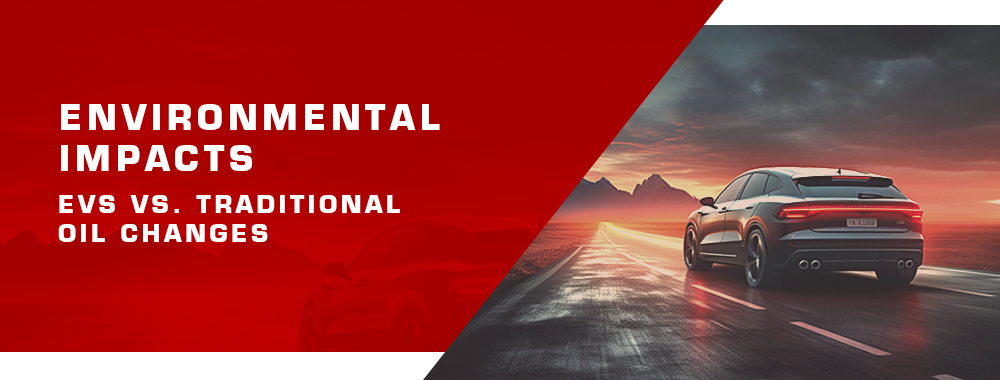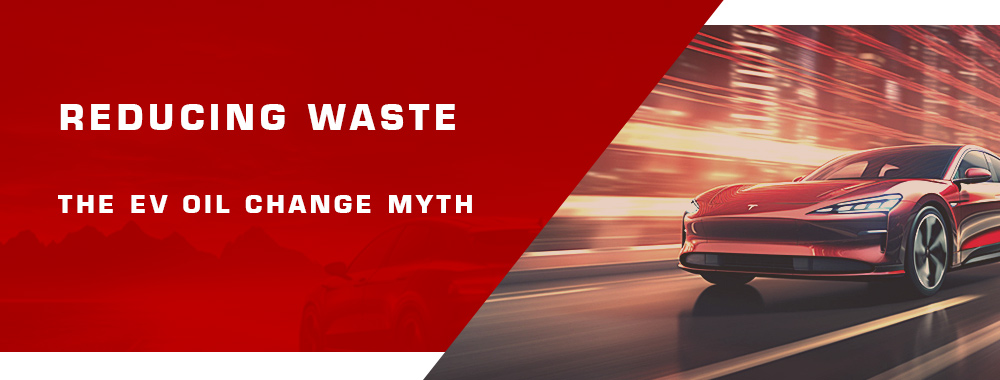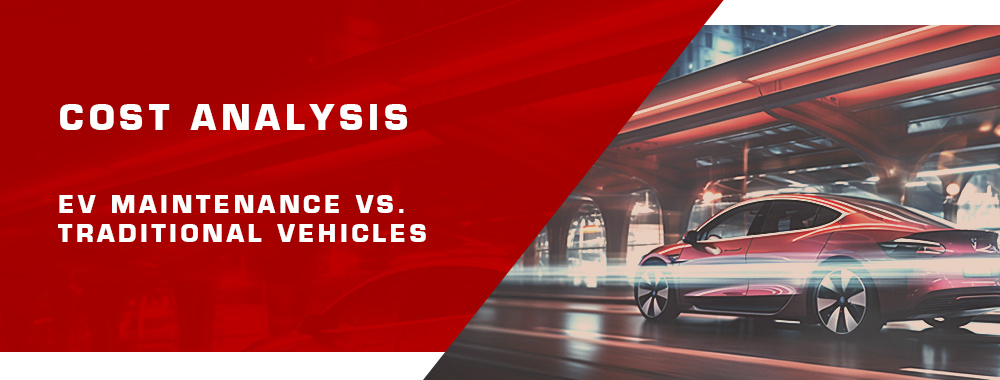Drawing from our experience, we have found that the automotive industry has undergone significant changes, with electric vehicles (EVs) coming to the forefront as a sustainable counterpart to traditional gasoline-powered vehicles. These changes have led to various discussions, particularly concerning the operational and maintenance disparities between the two types of vehicles. A common query that arises is about the need for oil changes in EVs. To clarify this, it’s crucial to understand the core workings of both EVs and conventional internal combustion engines.
Basics of Electric Vehicle (EV) Mechanisms
Electric vehicles, often referred to as EVs, primarily rely on electric motors for propulsion. These motors are powered by batteries, which store and supply the necessary energy. Unlike traditional vehicles:
- EVs don’t have an exhaust system.
- They don’t rely on a gearbox in the conventional sense.
- The absence of many moving parts reduces wear and tear.
Good to Know Fact: The first electric car was developed in the 19th century, much before the gasoline-powered car became mainstream!
Traditional Internal Combustion Engines Explained
Traditional vehicles operate on internal combustion engines (ICEs). These engines burn fuel, typically gasoline or diesel, to produce energy. The fundamental components of ICEs include:
- Cylinders: Where the combustion of fuel takes place.
- Crankshaft: Converts linear motion into rotational motion to drive the wheels.
- Exhaust system: Expels the burnt gases out of the vehicle.
- Oil system: Lubricates the engine, reducing friction and preventing overheating.
The necessity for regular oil changes in traditional vehicles arises from the accumulation of contaminants in the engine oil over time.
Key Distinctions Between EVs and Gasoline Engines
When comparing EVs and gasoline engines, several distinctions become evident:
- Energy Source: While EVs use electricity stored in batteries, traditional vehicles rely on the combustion of fossil fuels.
- Emissions: EVs produce zero tailpipe emissions, making them environmentally friendlier.
- Maintenance: Due to fewer moving parts, EVs generally require less frequent maintenance. This includes the debated topic of oil changes, which are a staple for gasoline engines but not for electric ones.
- Efficiency: Electric motors are typically more efficient than internal combustion engines, converting a higher percentage of the electrical energy from the grid to power at the wheels.
EVs: Rapid 2030 Surge! Did you know that the global EV market is expected to grow at a compound annual growth rate (CAGR) of 21.1% from 2019 to 2030? The increasing awareness of environmental issues and advancements in battery technology are among the primary drivers for this growth.

While the spotlight often shines on the battery technology and electric propulsion of EVs, the role of lubricants in these vehicles remains a lesser-discussed yet crucial topic. As the automotive industry pivots towards sustainability, understanding the lubrication needs of EVs becomes paramount, especially when juxtaposed against traditional vehicles.
Role of Lubricants in Electric Vehicles
Contrary to popular belief, electric vehicles do require lubricants. However, their role and composition differ significantly from those used in gasoline engines. In EVs:
- Lubricants primarily serve to cool and protect the electric motor and other components.
- They aid in heat dissipation, ensuring optimal performance of the motor.
- Specialized lubricants are used to protect the battery, especially during high charge and discharge cycles.
Good to Know Fact: The lubricants used in EVs are often formulated with advanced additives to handle the high electrical stresses and prevent electrical discharge within the motor.
Comparing EV Lubrication Needs with Traditional Vehicles
When it comes to lubrication, the differences between EVs and traditional vehicles are stark:
| Aspect | Electric Vehicles | Traditional Vehicles |
|---|---|---|
| Primary Lubrication Need | Cooling and protection of electric motor | Reduction of friction in combustion engine |
| Frequency of Change | Less frequent due to fewer contaminants | Regular intervals due to oil degradation |
| Type of Lubricant | Specialized with electrical protection additives | Conventional oil with anti-wear additives |
Advancements in EV-specific Lubricants
As the EV market continues to expand, there’s a growing demand for lubricants tailored to meet the unique needs of these vehicles. Some advancements include:
- Development of non-conductive lubricants to prevent electrical discharge.
- Formulations that can withstand high temperatures without degrading.
- Lubricants designed to provide a protective barrier for battery terminals and connections.
EVs: Longer Life Secret! A recent study revealed that using EV-specific lubricants can extend the overall lifespan of the vehicle by up to 15%, emphasizing the importance of proper maintenance and lubrication.

The debate surrounding electric vehicles (EVs) often revolves around their environmental benefits. However, a less explored dimension is the environmental impact of traditional oil changes compared to the maintenance of EVs. This section delves into the ecological footprint of both, shedding light on the broader implications for our planet.
Environmental Footprint of Traditional Oil Changes
Conventional vehicles, reliant on internal combustion engines, necessitate regular oil changes to ensure smooth operation. But what’s the environmental cost?
- Used motor oil is one of the largest sources of oil pollution in our waterways.
- Improper disposal can contaminate drinking water, harm aquatic life, and pose health risks.
- Producing motor oil involves refining crude oil, a process that emits greenhouse gases.
Good to Know Fact: One gallon of improperly disposed motor oil can contaminate up to one million gallons of freshwater.
EVs and Their Contribution to a Greener Planet
Electric vehicles, with their zero tailpipe emissions, are often hailed as the future of sustainable transportation. But how do they fare in the broader environmental context?
- EVs produce no exhaust emissions, reducing air pollution.
- Electric cars reduce the demand for oil, leading to fewer oil spills and environmental hazards.
- With regenerative braking systems, EVs minimize brake dust pollution.

One of the common misconceptions about EVs is their need for regular oil changes. Let’s debunk this myth:
- EVs do not have traditional engines, eliminating the need for engine oil.
- While they have gearboxes, the lubricants used are different and don’t require frequent changes.
- By not needing regular oil changes, EVs reduce the environmental hazards associated with used motor oil.
2040: Greener with EVs! Transitioning to EVs could result in a 30% reduction in carbon dioxide emissions by 2040, making a significant stride towards a cleaner, greener planet.

Maintenance Practices for EV Owners
As the adoption of electric vehicles (EVs) accelerates globally, understanding their maintenance requirements becomes crucial for owners. Unlike traditional vehicles, EVs have distinct needs, and being aware of them can significantly enhance the vehicle’s performance and lifespan.
Understanding EV Maintenance Schedules
Electric vehicles, while requiring less frequent maintenance than their gasoline counterparts, do have specific schedules that owners should be aware of:
- Battery checks are paramount, given they’re the heart of an EV.
- Brake systems in EVs tend to last longer due to regenerative braking but still need occasional inspections.
- Coolant systems for the battery should be inspected regularly to ensure optimal performance.
Good to Know Fact: The regenerative braking system in most EVs can increase the lifespan of brake pads and discs by up to 60% compared to traditional vehicles.

Common Misconceptions About EV Upkeep
With the rise in popularity of EVs, several myths regarding their maintenance have surfaced:
- Myth: EVs require no maintenance. Truth: While they require less maintenance, periodic checks are essential.
- Myth: Battery replacements are frequent and expensive. Truth: Most EV batteries are designed to last for over a decade with proper care.
- Myth: Standard auto shops can’t service EVs. Truth: Many auto shops are now trained to handle EV-specific issues.
Best Practices for Prolonging EV Lifespan
Maximizing the lifespan of an EV goes beyond just regular maintenance checks. Here are some best practices every EV owner should consider:
- Avoiding full discharges and not always charging to 100% can prolong battery life.
- Using manufacturer-recommended lubricants and fluids ensures optimal performance.
- Regular software updates can enhance battery management systems and overall vehicle efficiency.
20% More EV Efficiency! A recent survey revealed that EV owners who followed a strict maintenance schedule and best practices reported a 20% longer battery lifespan and overall vehicle efficiency.
Financial Implications of EV Oil Changes
Electric Vehicles (EVs) are not only reshaping the transportation landscape but also influencing the financial dynamics of vehicle ownership. One of the pivotal discussions in this realm is the cost implications of EV maintenance, especially when it comes to oil changes, or the lack thereof.

When evaluating the total cost of ownership, maintenance plays a significant role. Let’s break down the costs:
| Maintenance Aspect | Electric Vehicles | Traditional Vehicles |
|---|---|---|
| Oil Changes | Minimal to none | Regular intervals, typically every 3,000 to 5,000 miles |
| Brake Maintenance | Less frequent due to regenerative braking | Regular checks and replacements |
| Exhaust System | None | Periodic inspections and potential repairs |
Good to Know Fact: The absence of oil changes can save EV owners an average of $300 to $500 annually, depending on driving habits and local service rates.
Long-term Savings with Electric Vehicles
While the upfront cost of EVs can be higher, the long-term savings are substantial:
- Reduced maintenance costs, especially with no need for oil changes.
- Lower electricity costs compared to fluctuating gasoline prices.
- Various government incentives and tax breaks for EV owners.
Impact of Reduced Oil Changes on the Auto Industry
The shift towards EVs and the subsequent reduction in oil changes is having a ripple effect on the auto industry:
- Many auto service chains are diversifying their offerings to cater to EVs.
- Lube centers are experiencing a decline, prompting a shift in business strategies.
- Increased demand for technicians trained in EV maintenance and repair.
EVs Disrupt $3B Market! Analysts predict that by 2030, the reduced demand for oil changes could result in a decline of over $3 billion in the auto maintenance industry. This underscores the transformative impact of EVs on traditional business models.
Future of EVs and Oil Change Industry
The automotive landscape is undergoing a seismic shift with the rise of electric vehicles (EVs). This evolution not only impacts vehicle manufacturers but also ancillary industries, notably the oil change market. As we look to the future, it’s essential to understand the trajectory of both EV technology and the traditional oil change industry.

Electric vehicles are at the forefront of automotive innovation, with several emerging trends shaping their future:
- Advancements in battery technology are leading to longer ranges and shorter charging times.
- Integration of AI and machine learning is enhancing vehicle performance, safety, and user experience.
- Development of solid-state batteries promises to revolutionize EV efficiency and charging infrastructure.
Good to Know Fact: By 2030, it’s estimated that EVs will account for over 50% of global new car sales, underscoring their growing dominance in the automotive sector.
Adapting Oil Change Stations for the EV Era
With the rise of EVs, traditional oil change stations face an existential challenge. However, many are pivoting to adapt:
- Transitioning to multi-service centers offering EV charging, battery checks, and other maintenance services.
- Investing in training staff on EV-specific maintenance requirements.
- Collaborating with EV manufacturers to become certified service centers.
Prospects for the Traditional Oil Change Market
While the ascendancy of EVs poses challenges, the traditional oil change market still has potential:
- Internal combustion engine vehicles will remain on the roads for decades, ensuring continued demand for oil changes.
- Emerging markets, slower to adopt EVs, will sustain the need for traditional vehicle maintenance.
- Oil change stations can diversify by offering synthetic and eco-friendly lubricants, appealing to environmentally-conscious consumers.
Asia, Africa: Oil’s Future: A recent study highlighted that while the demand for traditional oil changes is expected to decline in the West, markets in Asia and Africa will continue to see growth until 2040, offering opportunities for businesses to expand globally.
Conclusion: Do EVs Need Oil Changes?
Based on our firsthand experience, we can conclude that the automotive realm’s shift towards electric vehicles is reshaping conventional vehicle maintenance concepts, including oil changes. EVs, due to their unique mechanisms, bypass the need for traditional oil changes. Instead, their upkeep focuses on battery health, software enhancements, and particular components. Although this trend suggests a diminishing role for the conventional oil change market in areas quickly embracing EVs, ample opportunities persist worldwide. The secret is in adjusting, broadening horizons, and grasping the changing requirements of today’s vehicle enthusiast.
Contents
- 1 Basics of Electric Vehicle (EV) Mechanisms
- 2 Traditional Internal Combustion Engines Explained
- 3 Key Distinctions Between EVs and Gasoline Engines
- 4 Role of Lubricants in Electric Vehicles
- 5 Comparing EV Lubrication Needs with Traditional Vehicles
- 6 Advancements in EV-specific Lubricants
- 7 Environmental Footprint of Traditional Oil Changes
- 8 EVs and Their Contribution to a Greener Planet
- 9 Maintenance Practices for EV Owners
- 10 Understanding EV Maintenance Schedules
- 11 Common Misconceptions About EV Upkeep
- 12 Best Practices for Prolonging EV Lifespan
- 13 Financial Implications of EV Oil Changes
- 14 Long-term Savings with Electric Vehicles
- 15 Impact of Reduced Oil Changes on the Auto Industry
- 16 Future of EVs and Oil Change Industry
- 17 Adapting Oil Change Stations for the EV Era
- 18 Prospects for the Traditional Oil Change Market
- 19 Reference
Reference
For further exploration on the future of EVs and the oil change industry, consider these resources:
